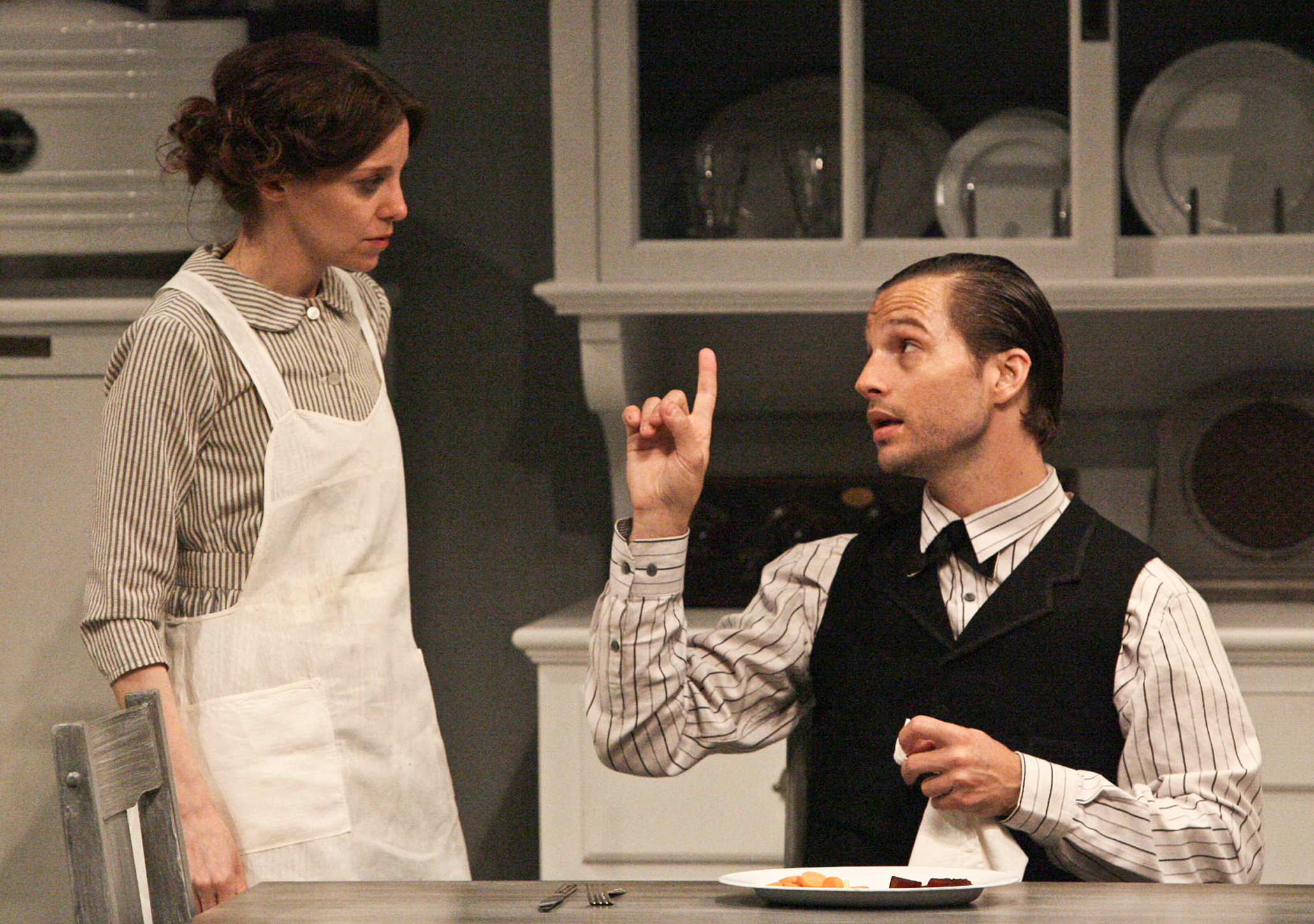A lot can happen in a kitchen overnight, especially if one of the kitchen’s inhabitants is a young woman teetering on the edge of madness.
Julie, the title character of the play “Miss Julie,” currently showing at the Geffen Playhouse, is not psychologically healthy. This adaptation of “Miss Julie” by Neil LaBute is set in Long Island in the 1920s, although the original version was written by August Strindberg and set in Sweden in the 1880s.
“Miss Julie” follows the unhinged young aristocrat Julie (Lily Rabe) and her interactions with her father’s sophisticated valet, John (Logan Marshall-Green), and his fiance, the pious cook Kristine (Laura Heisler). Julie’s engagement has recently been broken off, and after attending a servant’s ball, she attempts to seduce John.
The entire play takes place during a nightlong conversation in an immaculate kitchen. Almost everything in the kitchen, from the appliances to the china, is white. However, as the play progresses, the kitchen becomes soiled by the chaos caused by its inhabitants. Flowers are picked apart and left on the ground, a chair is thrown down in anger, a glass jar rockets across the room and shatters, and there is even some blood left on a side table.
The set’s transformation expertly represents the characters’ transformations. In the beginning, Julie appears to be the villain. She is seemingly oblivious to the plight of her servants. She likes to flaunt her wealth and power over them. John is much more charismatic and often cracks jokes. However, by the end of “Miss Julie,” the characters have gone through so many mood swings that it’s difficult to tell how they really feel. But Julie now seems the most sympathetic.
Although Julie’s mood swings are violent and rapid, Rabe is able to make her character’s feelings seem plausible for the situation. The more information the audience learns about Julie, the more her tempestuous moods make sense. Near the end of the play, Rabe delivers a stunning monologue, which is all ice and hate, exemplifying Rabe’s acting ability.
Marshall-Green also does a skilled job with John, as the character’s pride is expertly shown through Marshall-Green’s gesticulations and gait. It would be easy to make John the antihero, but Marshall-Green’s performance helps communicate that John has gone through a lot of pain by being at the bottom of an oppressive class system. The character is powerless, and thus his violent actions are also explainable.
Compared to the other characters, Kristine has very little stage time, so it is harder to understand her motivations. At times it seems like Kristine is only there to create more conflict between John and Julie. However, Heisler still does an excellent job – her pained and piteous facial expressions deftly communicate her feelings, even when she has no lines.
The Geffen’s production of “Miss Julie” does an excellent job of communicating the class conflicts of the Jazz Age and the psychological breakdown of one of its characters, and is an overall engrossing experience. Watching Julie slowly break down is like watching the glass jar rocket across the room and shatter – it’s a gruesome spectacle, but one can’t seem to look away.


